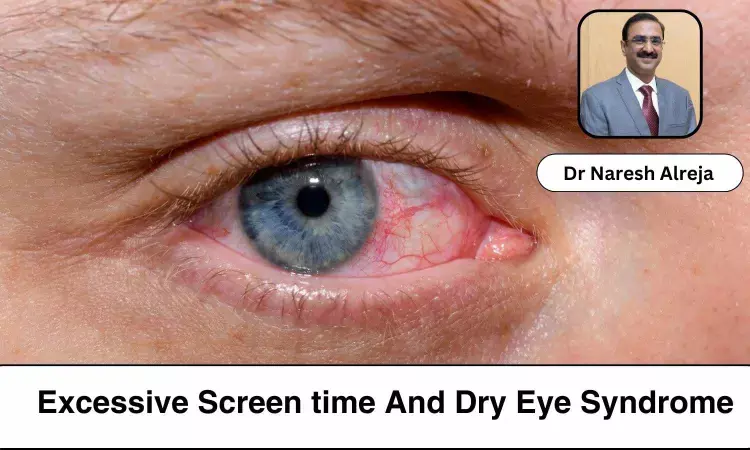- Home
- Medical news & Guidelines
- Anesthesiology
- Cardiology and CTVS
- Critical Care
- Dentistry
- Dermatology
- Diabetes and Endocrinology
- ENT
- Gastroenterology
- Medicine
- Nephrology
- Neurology
- Obstretics-Gynaecology
- Oncology
- Ophthalmology
- Orthopaedics
- Pediatrics-Neonatology
- Psychiatry
- Pulmonology
- Radiology
- Surgery
- Urology
- Laboratory Medicine
- Diet
- Nursing
- Paramedical
- Physiotherapy
- Health news
- Fact Check
- Bone Health Fact Check
- Brain Health Fact Check
- Cancer Related Fact Check
- Child Care Fact Check
- Dental and oral health fact check
- Diabetes and metabolic health fact check
- Diet and Nutrition Fact Check
- Eye and ENT Care Fact Check
- Fitness fact check
- Gut health fact check
- Heart health fact check
- Kidney health fact check
- Medical education fact check
- Men's health fact check
- Respiratory fact check
- Skin and hair care fact check
- Vaccine and Immunization fact check
- Women's health fact check
- AYUSH
- State News
- Andaman and Nicobar Islands
- Andhra Pradesh
- Arunachal Pradesh
- Assam
- Bihar
- Chandigarh
- Chattisgarh
- Dadra and Nagar Haveli
- Daman and Diu
- Delhi
- Goa
- Gujarat
- Haryana
- Himachal Pradesh
- Jammu & Kashmir
- Jharkhand
- Karnataka
- Kerala
- Ladakh
- Lakshadweep
- Madhya Pradesh
- Maharashtra
- Manipur
- Meghalaya
- Mizoram
- Nagaland
- Odisha
- Puducherry
- Punjab
- Rajasthan
- Sikkim
- Tamil Nadu
- Telangana
- Tripura
- Uttar Pradesh
- Uttrakhand
- West Bengal
- Medical Education
- Industry
How Excessive Screen Time Is Linked With Dry Eye Syndrome? - Dr Naresh Alreja

Dry eye syndrome (DES) is an eye condition characterized by dry, uncomfortable, red, itchy eyes, and can be caused by several factors: poor quality tears, insufficient tears, allergies, environmental irritants, and spending excessive time staring at a screen. Left untreated, DES can cause corneal damage and scarring, and rarely permanent vision loss.
In today’s tech-driven world, screen time has increased drastically. Blinking is an important physiological process to keep one's eyes lubricated all throughout the day. With excessive use of computers, mobile phones, and other display devices with a screen, there is a decrease in the number of eye blinks, incomplete blinking, evaporation of tears, and subsequently, dry eye disease.
If you’re like many people, your eyes are on a screen throughout the day; spending time staring at a computer, a tablet, or a smartphone at work and in your own time, you are prone to develop dry eyes. The most common type of dry eye disease is an evaporative type, and the use of screens is especially important in this group.
Studies also suggest that prolonged screen time may reduce tear production. When you're focused on a screen, you may not blink as often, leading to decreased tear production. This can result in dry, irritated eyes. Our blink rate is reduced by 66% when staring at a digital device’s screen. This finding is significant because blinking less frequently increases the risk of developing dry eye syndrome.
Blinking is a major component in keeping the eyes feeling fresh and healthy. With every blink, the eye’s tear film is replenished and spread evenly across the eye’s surface. When that happens at a reduced rate, symptoms of DES can develop.
Excessive screen usage can also lead to problems in social-emotional development, including obesity, sleep disturbances, depression, and anxiety. It can impair emotional comprehension, promote aggressive behaviour, and hinder social and emotional competence.
There’s more to your tears than just water. Oil and mucus are in them, too. You need all three substances to keep your eyes moist and comfortable. According to a report, it is estimated that 280 million people or roughly half of the Indian urban population will be affected by dry eye disease by the year 2030.
The average dry eye patient is typically an unhappy person with a long list of topical medications, going from one practitioner to another looking for answers. This needs to change. Counselling and chair time are important aspects of treating these patients.
Along with topical medication, eye exercises, frequent breaks from the screen, warm fomentation are some of the measures that can help treat dry eye disease and even reduce the need for topical medications.
Disclaimer: The views expressed in this article are of the author and not of Medical Dialogues. The Editorial/Content team of Medical Dialogues has not contributed to the writing/editing/packaging of this article.
Dr Naresh Alreja is an Ophthalmologist/ Eye Surgeon in Wadala, Mumbai and has an experience of 17 years in this field practicing at Kiran Eye Clinic in Wadala, Mumbai. Dr Alreja specializes in Glaucoma Treatment, Suture less cataract surgery, LASIK Eye Surgery, Eye Checkup - General and Eye Muscle Surgery.


